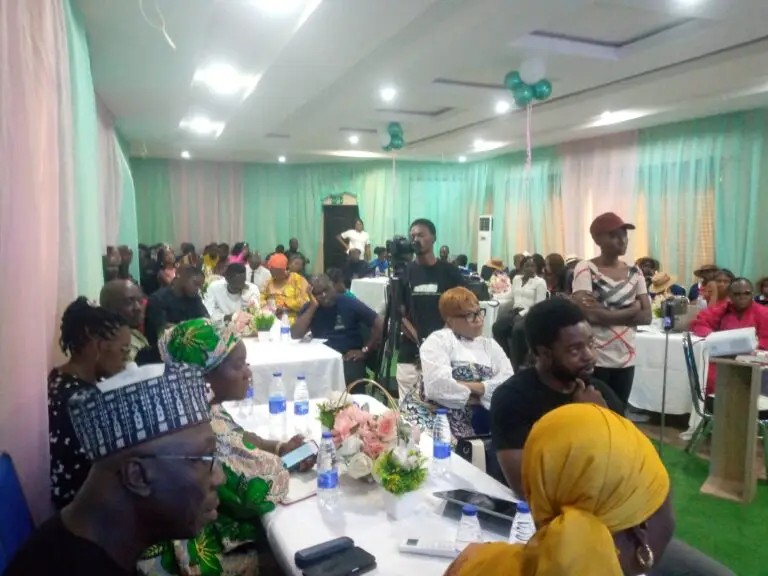By Aderogba George
Adinya Arise Foundation (AAF), an NGO, has urged the Federal Government to mainstream gender issues into the country’s social protection programmes.
Mrs Mabel Ade, Director, AAF, made the appeal at a programme tagged “Pad a girl, a month school initiative” organised to commemorate the 2024 World Menstrual Hygiene Day celebrated annually on May 28.
The News Agency of Nigeria (NAN) reports that the theme of the programme was “Bridging widening gender gap in education through `Pad a girl a month’ school initiative.
Ade said there was need for girls and women to have access to sanitary pads, adding that effort should be stepped up by the Federal Government in making sanitary pads available for women.
She particularly called on the Federal Government to mainstream gender issues into social protection programmes and make sanitary pads more accessible for women.
“AAF is an organisation that has its core objective on women empowerment; maternal health is one of our key objective. Menstruation is a very important aspect of maternal health.
“We cannot do anything without dealing with issues surrounding menstruation and that is the reason why as an organisation, we have given very high importance to menstruation health.
“Another reason why we decided on the topic “Pad a girl a month” is because going around the country, North West, North Central, South South, South East and South West, you will discovered that women are facing quite a lot of challenges.
“Some of these challenges are around coping with poverty; when there is poverty and you want to prioritise, you want to spend money, it becomes very difficult.
“It is difficult to prioritise menstruation over food for a mother, it is difficult to prioritise pads over children’s school fees and hospital bills for families.
“It is extremely difficult where you find families that are displaced on account of violence conflict.
“Nigeria is one great country that has a very good social protection policy that if well implemented, it will take care of issues that relate to poverty, one of such which affects the dignity of a woman and a girl,” she stressed.
Ade said that her foundation had done a lot on gender issues including drafting an Action Plan for the technical working group on menstruation hygiene health management.
Dr Priscilla Achakpa, the Chief Executive Officer (CEO) of Women Environmental Programme/Menstrual Hygiene Advocates, said there was need to make girls understand menstrual hygiene management.
She called on girls not to be ashamed of their menstrual period, stating that there were some communities where women were being humiliated when they are menstruating.
Mr Ali-Andrew Madugu, Director, Child Development Department, Federal Ministry of Women Affairs, stated that there was need to show care to women when they are observing their menstruation.
He appreciated the founder of AAF for what she was doing, and also advocated that pads be made available and accessible to discouraged some girls who stayed away from school because of menstruation issues.
Mrs Moji Makanjuola, Executive Director, International Society for Media in Public Health (ISMPD), said there should be no segregation between both genders as a result of women menstruating.
Makanjuola also said that Nigerians must begin to encourage manufacturers of hygiene materials, particularly sanitary towels, for more production, so that there won’t be shortage of such products in the country.
She called on the Ministry of Women Affairs to lead the campaign for more production of sanitary towels and other hygiene materials.
Makanjuola also appreciated the Director of AAF, stressing that the gap for access to menstruation pads must be bridged.
Mr Abdulrahman Dialo, the representative of the United Nations Educational, Scientific and Cultural Organisation (UNESCO), said the organisation will continue to support adolescent issues in Nigeria, having been captured in the Sustainable Development Goal 3 and 4.
Dialo, represented by Oye Tomori, an officer in the organisation, urged the girls to be proud of their femininity, adding that they should see themselves as strong and powerful.
He also advocated finding alternative means of making sanitary towels available to girls, pledging that UNESCO would continue to support the initiative.
D

